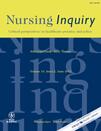Smye, Victoria
Person Preferred Name
Victoria Smye
Related Works
Content type
Digital Document
Abstract
Indigenous women are subjected to high rates of multiple forms of violence, including intimate partner violence (IPV), in the context of ongoing colonization and neo‐colonization. Health promotion interventions for women who experience violence have not been tailored specifically for Indigenous women. Reclaiming Our Spirits (ROS) is a health promotion intervention designed for Indigenous women living in an urban context in Canada. In this paper, we describe the development of the intervention, results of a pilot study, and the revised subsequent intervention. Building on a theory‐based health promotion intervention (iHEAL) showing promising results in feasibility studies, ROS was developed using a series of related approaches including (a) guidance from Indigenous women with research expertise specific to IPV and Indigenous women's experiences; (b) articulation of an Indigenous lens, including using Cree (one of the largest Indigenous language groups in North America) concepts to identify key aspects; and (c) interviews with Elders (n = 10) living in the study setting. Offered over 6–8 months, ROS consists of a Circle, led by an Indigenous Elder, and 1:1 visits with a Registered Nurse, focused on six areas for health promotion derived from previous research. Pilot testing with Indigenous women (n = 21) produced signs of improvement in most measures of health from pre‐ to post‐intervention. Women found the pilot intervention acceptable and helpful but also offered valuable suggestions for improvement. A revised intervention, with greater structure within the Circle and nurses with stronger knowledge of Indigenous women's experience and community health, is currently undergoing testing.
Origin Information
Content type
Digital Document
Abstract
Nurses’ experiences in, and the overall effectiveness of, widely used alternative‐ to‐discipline programs to manage nurses’ substance‐use problems have not been adequately scrutinized. We uncovered the conflicted official and experiential ways of knowing one such alternative‐to‐discipline program in a Canadian province. We explicated this conflict through an institutional ethnography analysis. Ethnographic data from interviews with 12 nurses who were enrolled in an alternative‐to‐discipline treatment program and three program administrators, as well as institutional texts, were analyzed to explore how institutional practices and power relations co‐ordinated and managed nurses’ experiences. Analysis revealed the acritical acceptance of a standardized program not based on current norms of practice. Potential and actual conflicts of interest, power imbalances, and prevailing corporate interests were rife. Nurses were not afforded the same rights to quality ethical health care as other citizens. ‘Expert’ physicians’ knowledge was privileged while nurses’ knowledge was subordinated. Conclusions were that regulatory bodies cannot rely on the taken‐for‐granted standardized treatment model in widespread use. Individualized treatment alternatives reflecting current, scientific evidence must be offered to nurses, and nurses’ knowledge, expertise, and experiences need to be included in decision‐making processes in these programs.
Origin Information
Content type
Digital Document
Abstract
Problematic substance use (PSU) among nurses has wide‐ranging adverse implications. A critical integrative literature review was conducted with an emphasis on building knowledge regarding the influence of structural factors within nurses' professional environments on nurses with PSU. Five thematic categories emerged: (i) access, (ii) stress, and (iii) attitudes as contributory factors, (iv) treatment policies for nurses with PSU, and (v) the culture of the nursing profession. Conclusions were that an overemphasis on individual culpability and failing predominates in the literature and that crucial knowledge gaps exist regarding the influence of structural factors on driving and shaping nurses' substance use. [ABSTRACT FROM AUTHOR]
Origin Information
Content type
Digital Document
Abstract
We undertook an institutional ethnography utilizing the expert knowledge of nurses who have experienced substance-use problems to discover: (a) What are the discourses embedded in the talk among nurses in their everyday work worlds that socially organize their substance-use practices and (b) how do those discourses manage these activities? Data collection included interviews, researcher reflexivity, and texts that were critically analyzed with a focus on institutional features. Analysis revealed dominant moralistic and individuated discourses in nurses’ workplace talk that socially organized their substance-use practices, subordinated and silenced experiences of work stress, and erased employers’ roles in managing working conditions. Conclusions included that nurses used substances in ways that enabled them to remain silent and keep working. Nurses’ education did not prepare them regarding nurses’ substance-use problems or managing emotional labor. Nurses viewed alcohol as an acceptable and encouraged coping strategy for nurses to manage emotional distress.
Origin Information




